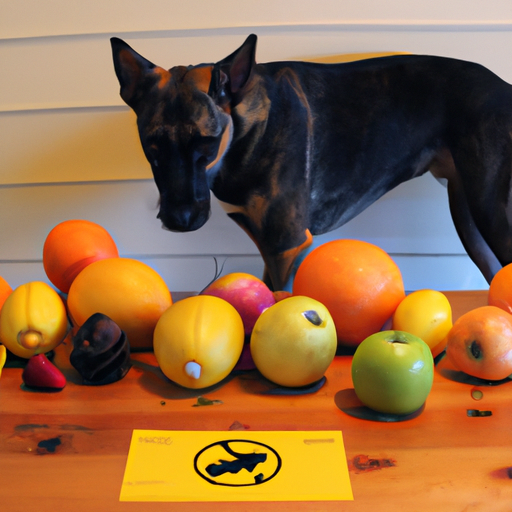Introduction
You love your furry friend, don’t you? And, as a devoted caregiver, you’re always looking out for the best way to keep them healthy and happy. One area that often gets overlooked is what kinds of fruits dogs can and cannot eat.
The Potential Dangers of Fruits
You might be wondering, “Why should I be concerned about fruits? They’re healthy!” While that’s true for humans, and many fruits can be beneficial for dogs too, some are dangerous. They contain substances that their bodies can’t process, leading to potentially serious health issues.
List of Fruits Dogs Cannot Have
Here’s a list of fruits that you should never feed your dog:
- Grapes and Raisins: They can cause kidney failure in dogs.
- Cherries: They contain cyanide, which is toxic to dogs.
- Avocados: They contain persin, a fungicidal toxin that can cause serious health problems.
- Citrus Fruits: The citric acid can cause upset stomachs in dogs.
- Tomatoes: The green parts of the tomato can be harmful to dogs.
Safe Fruits for Dogs
Now, let’s focus on the fruits that are safe and healthy for your canine companion. Here’s a list:
- Apples: They are a great source of vitamins A and C.
- Bananas: They’re high in potassium and fiber.
- Blueberries: They’re packed with antioxidants.
- Pears: They have good amounts of vitamins C and K.
- Watermelon: It’s hydrating and full of vitamins A, B6, and C.
| Safe Fruits | Benefits |
|---|---|
| Apples | Great source of vitamins A and C |
| Bananas | High in potassium and fiber |
| Blueberries | Packed with antioxidants |
| Pears | Good amounts of vitamins C and K |
| Watermelon | Hydrating and full of vitamins A, B6, and C |
Frequently Asked Questions (FAQ)
Q: Can dogs eat strawberries?
A: Yes, strawberries are safe for dogs but should be given in moderation due to their high sugar content.
Q: Are oranges harmful to dogs?
A: While not toxic, oranges are high in sugars and can lead to upset stomachs. They should be given sparingly.
Q: Can dogs eat pineapple?
A: Yes, in small amounts. Pineapple is high in sugar, so it should be a rare treat, not a regular part of their diet.
Remember, it’s always important to talk to your vet before introducing new foods into your dog’s diet. Keep your dog healthy and safe by being aware of what fruits they can and cannot eat.



